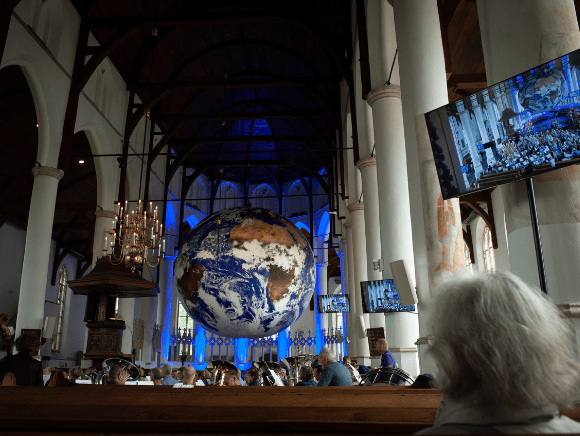One of the things that seems to happen when we have lived more than a few years on Earth is the consideration of existentially significant questions. You know, the kind that will be eternally debated but never solved. And we’re not talking about which is superior between Coke and Pepsi, McDonald’s and Burger King, or Ginger and Marianne (of Gilligan’s Island fame, for you whippersnappers out there).
Truth is, most of us eventually ask ourselves the big questions: the meaning of life, what difference we make in the world, what would have happened if we were born into another family, or in a different place, or how life would have unfolded if we had married a different person or chosen a different career. But there is one speculative query sometimes discussed peripherally, though not often beyond the simple truisms, many of which begin with either “back in my day” or “these kids today …” Here it is:
If you could pick any time, any age, and any period in history to be alive, when would you choose?
 Right off the bat, many people would immediately rule out the current age. They would understandably cite the breakdown of order and civility, the balkanization of the populace, the increasing currency of ideas once considered unthinkable, the decline in what used to be universal values, and the dominance of the central state. In sum, the hardest realities of life in the 21st century.
Right off the bat, many people would immediately rule out the current age. They would understandably cite the breakdown of order and civility, the balkanization of the populace, the increasing currency of ideas once considered unthinkable, the decline in what used to be universal values, and the dominance of the central state. In sum, the hardest realities of life in the 21st century.
More than one conservative to whom I have posed this question answered without much hesitation, expressing how wonderful it would have been to exist during the founding of the republic, in the shadows of the brave and brilliant patriots Washington, Jefferson, Adams et al. How remarkable it would have been to bear witness to the construction of a nation unlike any other. When asked the same question, others might respond with a fondness for the Gilded Age, the Industrial Revolution, the roaring ’20s, the Reagan Era in the 1980s, or, for some, anytime before 9/11/01.
Some people will answer according to their interests. For example, an avid Yankees fan might choose to live during the days of Babe Ruth, Joe Dimaggio, or Mickey Mantle. Those with a particular interest in aeronautics might love to have been there at the time of the Wright brothers, or Charles Lindbergh. Civil War buffs might favor the mid-19th century, even understanding the horror that surrounded that nation-defining conflict.
2022 – The Best or Worst of Times?
For all the perceived drawbacks of modern life, the degradation of society, the values which have unfortunately entered the national bloodstream, and all the other objections to contemporary life in America, the reality is that all in all, the best time to be alive is – right now.

Babe Ruth (credit: Bettmann / Contributor via Getty Images)
Now, before you go off believing that some virus has warped the mind of a normally right-minded, or at least level-headed, political analyst, allow me to explain why we should feel blessed to live in such a time as this. And it does not matter when you were born. It only matters whether you choose to embrace, or be intimidated by, the technology that has all but conquered the drudgery of everyday life – and created immense opportunities only dreamed of in days gone by.
But what if you are a true technophobe, intimidated by computers, automation, and artificial intelligence – technology in general? Well then, listen up and you might conclude that, not only would a dive into the digital realm be worth your effort, but failing to do so would represent the missed opportunity of a lifetime. Just consider life today versus yesteryear.
The shoe-phone in the TV show Get Smart, the wristwatch TV of Dick Tracy, and almost anything depicted in The Jetsons, were fanciful examples of things that no one seriously believed could one day be real. But now we have surpassed those seeming pipe dreams and entered a realm where we can literally control our lives without leaving our homes or even our beds. We can create our own universe, organized around all the things we love.
Start with things we all take for granted like telephones and television. You used to be off the grid if you left home and your trusty landline. Now, smartphones allow you to take your whole life with you and conduct business from anywhere in the world. Similarly, there used to be no TV. Then, there was TV, but to watch it, we had to set our entire schedule around being in front of the set when a show actually ran – often with uncontrollable interference. Then, we could use what now seems like clunky videotapes to record shows in fuzzy resolution. Now, in the internet age, we are able to capture unlimited programs in ultra-high definition to be viewed whenever we feel like it. And we can watch on a huge, gleaming 60-inch monitor, which is not even as expensive as the old TV’s less than half the size, a fraction of the quality, and quadruple the weight.

Movies were once only in theaters, then occasionally on TV, then in video stores like Blockbusters, where we had to settle for what was on the shelf – and always seemed to pick duds and accrue late charges. Nowadays, we can click a couple of buttons, and for a few bucks, watch virtually any movie ever made, on-demand from the comfort of our homes. With the advent of Netflix and similar platforms, exponentially more content is available – so much that we could watch non-stop for the rest of our lives and still not see everything available. And if we still want to go to the movies, increasingly luxurious theatres are offering gourmet meals to be served while we are watching on the big screen.
How about books? They were once available only in heavy hard covers hardly conducive to portability, and then in cheaper paperbacks, at the bookstore. But then came the advent of Kindle and comparable devices which provide almost instant access to virtually any book ever written. We used to have to trudge to the library for information that is now at our fingertips, The knowledge – if not the wisdom – of the ages is available to everyone, everywhere.
Then there’s music, which we could once only enjoy in person, then with gadgets like record players, cassette or 8-track players, or a Walkman. Now – as with movies, TV, and books – it is strikingly simple to find and own any song ever recorded. And unlike the days when we had to run unsightly wires everywhere to get decent sound, we can now send music through an entire house without a single wire.
And what about shopping? In the Amazon world, most of our wants – and needs – are met with a click or two – and then the item just shows up at our door. It is the same, now, with almost any kind of food. Heck, entire houses have been decorated without a single trip to a furniture store. Accessories to make life more bearable, things one would never have even thought to buy which save countless time and effort, are now available in myriad shapes, sizes, and colors.

(Photo by Joan Cros/NurPhoto via Getty Images)
Your World at Your Fingertips
We live in an age when even those who don’t like to leave home or don’t care for contemporary society, or wish they had lived in another time, can actually create their own world. If you pine for the 1950s, for example, you can easily fill your device with every song by Elvis, Sinatra, or Nat King Cole, download movies Like Vertigo, Sunset Boulevard, or Bridge on the River Kwai, and watch every episode of shows such as the Twilight Zone or Perry Mason. You can devour Fahrenheit 451, The Invisible Man, Atlas Shrugged, and all the other books written in or about that decade. You can even go online and select from an array of 1950s-themed clothing or mementos – from anywhere in the world.
Of course, none of this matters in the end if we are not around to enjoy it. And the medicine of today allows us to live far longer and healthier. While the occurrence of cancer has risen, so have breakthroughs that render an increasing number of forms of the dreaded disease as treatable. We can use robots to precisely perform complicated surgeries. Antibiotics which stave off more and more diseases and infections have saved countless lives. Deadly diseases ranging from the Bubonic Plague to smallpox to Polio have been eradicated. Life expectancy in the US has risen by 25 years in just the last century. And for those enamored with days gone by, consider that it used to be, not that long ago, that any woman who would these days require a caesarian section (i.e., c-section) would have died in childbirth.
If you had been told, say, 40 or 50 years ago, that you could be transported forward to a world filled with all the possibilities enumerated herein, would you have signed up for it? Would you have embraced having the world at your fingertips, needing only to figure out how best to optimize it for your own life? Or would you have let the inevitable learning curve common to any new technology intimidate and drive you away? If so, understand that the world you can create for yourself these days is unquestionably worth the time to face your fear of the unknown.




